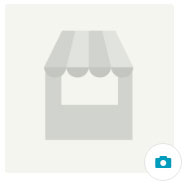Etsy vs. Shopify: Which Platform is Right for Your Business?

Etsy vs. Shopify: Which Platform is Right for Your Business?
When it comes to selling your products online, two names often come to the forefront: Etsy and Shopify. While both are powerful platforms for e-commerce, they serve very different purposes. Choosing the right one depends on your business goals, your products, and how much control you want over your brand. This guide will break down the key differences between Etsy and Shopify to help you make an informed decision.
What is Etsy?
Etsy is an online marketplace specifically for handmade goods, vintage items, and craft supplies. Think of it like a massive, virtual craft fair. When you open an Etsy shop, you're setting up a stall in this marketplace.
Pros of Selling on Etsy:
- Built-in Audience: Etsy has millions of active buyers who come to the site specifically to purchase unique, handcrafted items. This means you have a ready-made pool of potential customers from day one.
- Easy to Get Started: Setting up an Etsy shop is incredibly simple and straightforward. You can have your first listing up in a matter of minutes.
- Low Upfront Costs: There are no monthly fees to have a basic Etsy shop. You only pay a small listing fee and a percentage of each sale.
- Trust and Credibility: Etsy is a well-known and trusted brand, which can lend credibility to your new shop.
Cons of Selling on Etsy:
- Direct Competition: You are listed right alongside your direct competitors, making it harder to stand out.
- Limited Branding and Customization: While you can customize your shop banner and logo, your shop will still look and feel like an Etsy page. You have very little control over the overall design and user experience.
- Transaction Fees: Etsy's fees can add up, especially when you factor in transaction fees, payment processing fees, and offsite ad fees. Be sure to use an Etsy Fee Calculator to understand the costs.
- Subject to Etsy's Rules: You have to play by Etsy's rules, which can change at any time. Your business is ultimately at the mercy of their algorithm and policies.
What is Shopify?
Shopify is a comprehensive e-commerce platform that allows you to create your own standalone online store. Think of it as building your own store from the ground up. You have complete control over the design, branding, and customer experience.
Pros of Selling on Shopify:
- Complete Control: You have full control over the look, feel, and functionality of your website. You can create a truly unique brand experience.
- No Direct Competition: On your own website, you are the only seller. Customers are not distracted by other shops.
- Powerful Marketing Tools: Shopify integrates with a vast ecosystem of apps and tools for marketing, SEO, and customer relationship management.
- Scalability: Shopify can grow with your business, from a small startup to a large enterprise.
Cons of Selling on Shopify:
- You Have to Drive Your Own Traffic: Unlike Etsy, Shopify does not have a built-in audience. You are responsible for all of your own marketing and traffic generation.
- Monthly Fees: Shopify has a monthly subscription fee, which can range from around $30 to several hundred dollars, depending on your plan.
- More Complex to Set Up: While Shopify is user-friendly, it has a steeper learning curve than Etsy. Building a professional-looking store takes time and effort.
Etsy vs. Shopify: A Head-to-Head Comparison
| Feature | Etsy | Shopify | | :--- | :--- | :--- | | Business Model | Marketplace | Standalone Store | | Audience | Built-in | You build your own | | Ease of Use | Very easy | Moderate learning curve | | Cost | Pay-per-sale | Monthly subscription | | Branding | Limited | Full control | | Competition | High (on-platform) | You control the environment | | Marketing | Etsy SEO, Etsy Ads | You are responsible for all marketing |
Who Should Sell on Etsy?
Etsy is a great choice for:
- New sellers and hobbyists who want to test the waters of e-commerce without a large upfront investment.
- Artists and crafters who want to reach a large, targeted audience of buyers looking for handmade goods.
- Sellers who don't want to deal with the technical aspects of building and maintaining a website.
Who Should Sell on Shopify?
Shopify is a better fit for:
- Established businesses that want to build a strong, independent brand.
- Sellers who want complete control over their branding and customer experience.
- Businesses that have a solid marketing plan and are prepared to drive their own traffic.
The Best of Both Worlds: Using Etsy and Shopify Together
You don't necessarily have to choose between Etsy and Shopify. Many successful sellers use both platforms in tandem. They use Etsy as a customer acquisition channel to reach new buyers and then drive those customers to their Shopify store for future purchases. This allows you to take advantage of Etsy's built-in traffic while also building a long-term, sustainable brand on your own platform.
Conclusion
The choice between Etsy and Shopify depends entirely on your individual business goals and resources. If you're just starting out and want to test your product ideas, Etsy is a fantastic, low-risk option. If you're serious about building a long-term brand and have the resources to invest in marketing, Shopify offers unparalleled control and scalability.
No matter which platform you choose, success requires a deep understanding of your target market and a commitment to quality products and customer service. For more insights into what makes a successful e-commerce business, explore the top Etsy shops and see what you can learn from their strategies.
